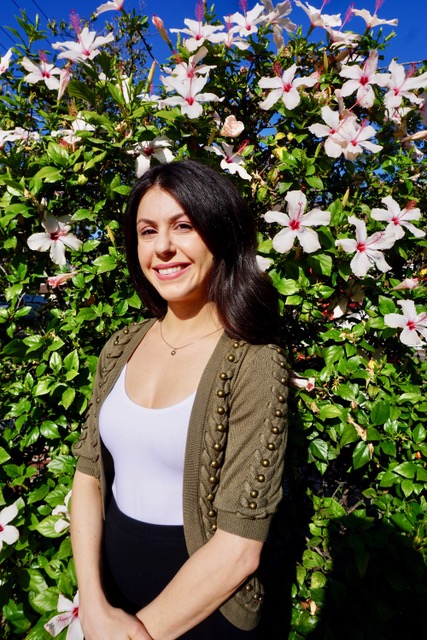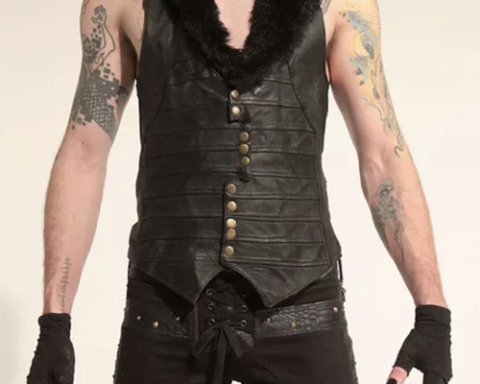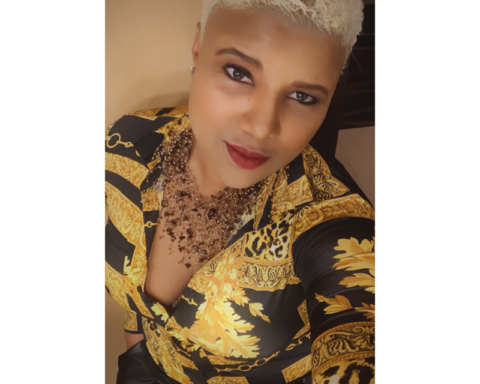Who are you? Where are you from?
My name is Tina Babajanians and I am a master voice clinician. I run my private practice out of my home office in Pasadena, California.
I was born in Iran and immigrated to the United States when I was three years old. I grew up in Southern California, moved to the bay area for a brief time and have been living in Pasadena for the last seven years.
My education and career background is in speech and language pathology. I went to California State University, Northridge for my undergraduate program in Communication Disorders and Sciences. I finished my graduate program at California State Univeristy, East Bay in Speech – Language Pathology. I have been practicing the rehabilitative art of speech language pathology for nine years and my greatest area of interest has always been the voice and voice therapy.
Have you witnessed people targeting Transmen due to their voices? is that what inspired you to create this service?
General safety is a concern for the transgender population and although I have not personally witnessed trans – feminine (male to female) individuals be targeted due to their voice differences this is one of the areas of concern that is often brought up by members of this community. Knowing that the voice can be such a crucial part of the transition process and it can reinforce a persons gender that definitely inspired me to build a protocol and confirmed the need for something like this to be available to people in the community.
What do you consider your self as?
I consider myself cis – female.
What made you decide to go in this direction of voice coaches?
I have alway been fascinated with the human voice. It is the instrument with which we express our thoughts, desires, and fears. The voice originates in the voice box, more formally called the larynx, and the larynx serves three purpose: physiological, biological and emotional. Its first and most important function is to protect the airway during breathing and swallowing. It prevents foreign matter from entering the airway by closing up and it expels foreign matter via coughing to remove the material or irritant. The second function of the larynx is phonatory; it provides the vibratory power to produce sound and speech. The third function of the larynx is to convey physical and emotional states. During periods of joy, stress, illness, etc our larynx and the surrounding structures (throat, jaw, tongue, cheeks) can enter relaxed or tense states which in turn effect our final vocal output. It is the emotional portion of the larynx and the voice that I am most fascinated with and that is what drove me to pursue my speciality in voice therapy.
It’s a very unique process that only a certain group of people would need… do you find it difficult to find clients?
My voice feminization service is very specific to the transgender community. It has been very challenging to get the word out that this service is available. I am definitely not the only voice therapist who offers this service in Los Angeles. However, I feel that I am unique because aside from offering the obvious one – on – one service, I am also seeking out organizations that would like to host single day workshops so that all people have access to this and things like money, time, resource don’t hinder them from receiving support in this area.
Do you only treat the LGBT community?
No, this is one area of voice therapy that I am very committed to but I do also offer general voice therapy for any professional voice user who has a vocal pathology and needs therapy. I also offer a service called Mindful Voice which is a functional voice program to prevent vocal injury and keep the voice healthy. I incorporate aspects of that program into my voice feminization protocol.
Do transgender men habitually want to change their voices to sound more feminine?
The trans – feminine individuals that I have met and worked with are all seeking ways to find their authentic voice that best represents who they are. For some this may be to find a very feminine voice. But for others they want to sound gender neutral.
Do you consider voice training a safer way of modifying ones voice as opposed to surgery or treatments?
Voice feminization therapy is a safer option, although perhaps a more tedious one, for modifying ones voice over a voice feminization procedure. The results of voice feminizing surgery are often unreliable and you can google many before/after results and listen to the many samples out there. Some individuals sound fantastic and some individuals are left with a voice that is less than desirable. And voice therapy is usually recommended pre – and post – op to ensure safe voicing and to keep the vocal folds healthy and clear of nodules or other pathologies.
The voice is a very important part of someones character have your clients recognized a change in how society views them since doing the training?
When my clients are living out their authentic self, and that includes being able to communicate with the voice that they feel best represents them, then they are better able to just exist in society without being viewed as anything but themselves. My goal is not to make sure society views my clients as acceptable, instead my goal is for my client to feel free to just be.
What do you feel would be the psychological impact for someone to change their voice to sound more like the person they want to be?
Think about a time when you developed an upper respiratory infection and as a result lost your voice for a few days. How frustrating was that? And often when the voice starts to come back it sounds hoarse, breathy, and it breaks often. It doesn’t sound pleasant and it certainly doesn’t sound like you right away. That can be jarring and uncomfortable. Now imagine that you feel that sense of frustration and disconnect from your voice all the time. Your voice communicates so much information, not just in the speech and language it conveys, but the emotional and physiological state of the human. It gives away if you are tired or sad. It gives away if you are excited. The voice is an instrument and it should be representative of the individual playing it.
I want all individuals to have access to the voice that best represents them. Even if it doesn’t sound perfect and even if it takes a long time. Changing your voice is a marathon, not a sprint. So I think because of the slow process there isn’t an acute psychological impact but over time finding the voice that you feel comfortable with and connected to can actually alleviate so much anxiety and fear. It can be a relief to the psyche.
What do you hope to achieve by helping the community find their voice?
I believe that the voice is an integral part of our identity as humans. And especially for the transgendered individual it is even more critical for them to find their authentic voice and for that voice to be able to tell their story. My hope is that my voice feminization protocol, in its one – on – one form or workshop form, can help individuals along on their journey to finding their voice. And I also hope to bring an educational component to my field and train others who are voice clinicians so that they can offer this service competently and with confidence to the LGBTQ community that they serve.
Some additional thoughts:
Voice modification therapy is very taxing on the vocal folds. One of the most important things any transgender individual can do while attempting to modify their voice is to follow a vocal hygiene program that is customized for them. This means they are taking into consideration the impact that diet, environment and lifestyle is having on their vocal folds and overall vocal health. This helps keep the vocal folds healthy and the larynx free of stress which in turn means they can access their voice.
Voice modification is a marathon not a sprint and it requires dedication, practice and some vulnerability to begin generalizing the new voice to different scenarios. Although we are not changing vocal anatomy we are providing access points to a voice that better represents the individual.
With an open mind, some flexibility and dedication it is possible to find a voice that you feel content with.
People from the transgender community can feel free to connect with me via my website or social media. My website is www.thevoicestylist.com and my social media handle is @thevoicestylist on Instagram and Twitter. I also have a Facebook page with a private group for trans-feminine clients to share their voice journey, tips, tricks, struggles and stories. Additionally I hope to go live once a week to connect with the members and offer suggestions for the voice. This is a new group I just launched so I am hoping this article will reach those who are looking for a safe and supportive online community to connect to.








Is this only for trans feminine people?